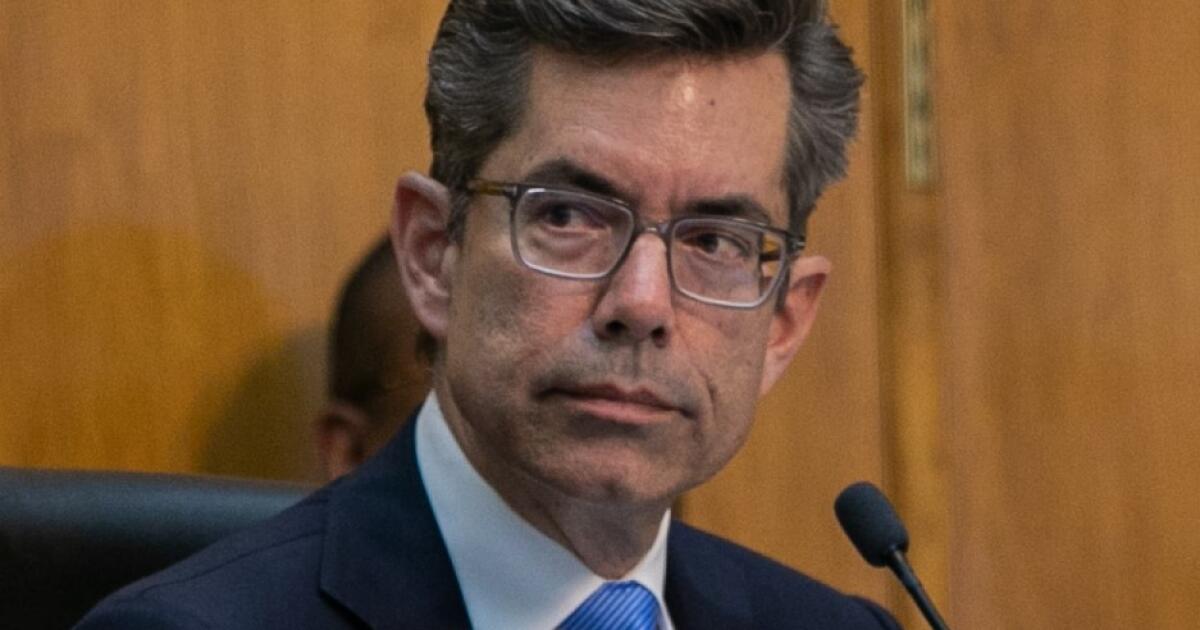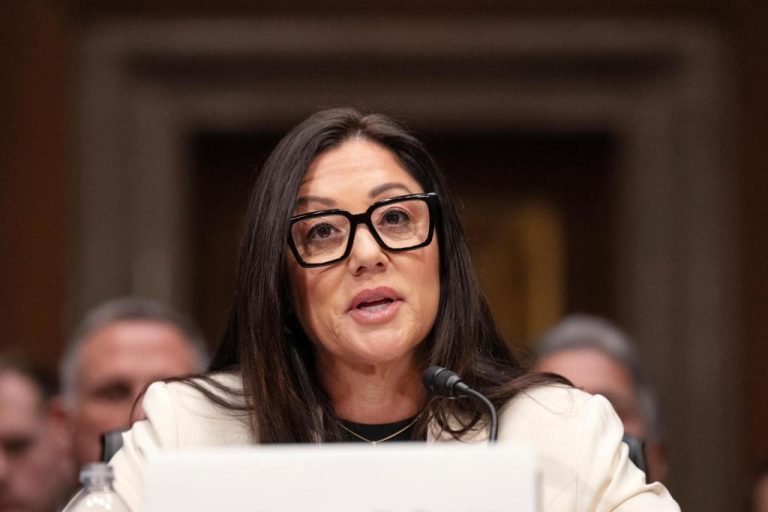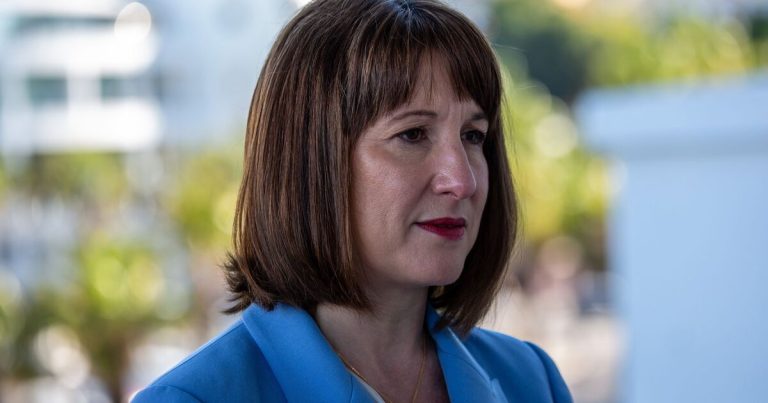

In the summer of 2021, a lobbyist representing a Riverside County cannabis dispensary met privately with Jesus Cardenas, then chief of staff to newly elected San Diego Councilmember Stephen Whitburn.
The lobbying report that Dallin Young of Blue Water Government Affairs filed with the city clerk later that year does not disclose the date he lobbied the council member’s top political aide.
But it does show the two men spoke about potential “updates to the city of San Diego’s commercial cannabis ordinances” and possible “changes to zoning and cannabis business tax rates.”
Cardenas at the same time was running a political consulting firm that collected tens of thousands of dollars from Blue Water and other cannabis interests, his economic disclosures confirm. He was the only public official Young reported lobbying during the three months ending Sept. 30, 2021.
Weeks later, Cardenas personally approved an agenda item for the city council’s land use and housing committee that called for relaxing San Diego’s cannabis policies, records show.
The changes would have aligned the city’s rules with state standards, making it easier to open dispensaries, increasing the number of pot shops allowed in each council district and extending their daily operating hours.
Whitburn was then chair of the land use and housing committee, but his stewardship of the panel was due to expire soon because a new council president was taking over and new committee assignments were in the works.
The cannabis changes pushed by Whitburn and his chief of staff were not approved by the council committee on the day of the hearing back in December 2021, and they have not been adopted since.
Now the criminal charges filed earlier this month against Cardenas and his sister, Chula Vista Councilmember Andrea Cardenas, are drawing fresh scrutiny as to why Whitburn brought the policy changes forward.
Cardenas, who with his sister is now accused of defrauding a federal COVID-19 relief program, did not respond last week to requests for comment about his work on behalf of cannabis clients of his firm Grassroots Resources and his public service as Whitburn’s chief of staff.
Whitburn sought to distance himself from Cardenas when asked about the apparent dual roles played by his right-hand man, saying in a statement that his longtime political aide and campaign manager had lied to him.
“I take my responsibilities as a councilmember seriously, and following the law is at the top of my list,” Whitburn wrote. “I asked (Cardenas) directly on more than one occasion to confirm he did not currently have any cannabis clients in the city or any other conflicts of interest, and he assured me that he did not.”
The District 3 council representative, whose campaign Cardenas managed in 2020, said he proposed changes to city cannabis rules due to his long-standing support for the drug’s medical benefits.
“The councilmember was interested in updating the city’s cannabis regulations because he had previously worked on cannabis regulations as vice chair of the city of San Diego’s medical marijuana task force in 2009,” his office said in a statement.
“The accessibility of cannabis, particularly for medical purposes, has been of interest to the councilmember since he heard from terminally ill acquaintances who told him it relieved their pain or stimulated their appetite,” the statement added.
He also cited the 2016 decision by California voters to legalize recreational marijuana use as a reason to amend the city’s policy.
‘Highly sought-after’
The San Diego Union-Tribune first reported in August 2022 that Cardenas was managing a political consultancy while also serving as Whitburn’s chief of staff. When asked about the arrangement at that time, the council member praised Cardenas.
“Jesus is a highly sought-after adviser whom I respect greatly, which is why I asked him to help me get things done for the residents of our district,” Whitburn said back then. “He brings a wealth of business experience to our city.”
Whitburn said last week that he never reviewed the statements of economic interest Cardenas filed with the city clerk — records that show Cardenas was making tens of thousands of dollars from marijuana business.
“They are public disclosures required by law, so that wasn’t where I would have expected to find problems,” he stated.
Cardenas reported that Grassroots Resources received $10,000 or more from Blue Water Government Affairs. He also collected at least that much from owners of the Harbor Collective and March and Ash dispensaries, his Form 700 filings disclosed.
Andrea Cardenas was elected to the Chula Vista council under her brother’s guidance in 2020. She also worked as a Grassroots Resources employee.
According to District Attorney Summer Stephan, Cardenas and his sister claimed Grassroots Resources had 34 employees when they applied for and received a loan under the U.S. Small Business Administration’s Paycheck Protection Program.
They applied for the loan in early 2021, months into their respective jobs in public service. They received more than $176,000 from the federal program and used the money to pay credit card bills, personal expenses and even campaign debt, prosecutors alleged.
According to the criminal complaint, the workers were actually employees of Harbor Collective, a pot dispensary licensed by the city of San Diego and owned by Noel and Swana Shamoun.
Cardenas spent more than two years running Grassroots Resources while also working as Whitburn’s chief of staff, records show. He resigned from San Diego City Hall this past April — eight months after the Union-Tribune reported the potential conflicts of interest.
The resignation came weeks after a separate report disclosing that Grassroots Resources had continued to operate as a business even though it had been suspended by the state Franchise Tax Board early last year.
At that time, Cardenas said he was in the process of shutting down his company.
20/20 hindsight
Whitburn said last week that he demanded Cardenas’ resignation as soon as he understood there was a potential problem with his chief of staff running a political consulting firm while also serving the people of San Diego.
“Hindsight being 20/20, it is understandable to look back and say I should have requested his resignation sooner,” the council member said. “However, for months he insisted that the (news) reports were inaccurate or fabricated by political adversaries.”
Whitburn also said he relied on a claim by Cardenas that the arrangement had been cleared by city ethics officials.
“He told me when he was hired in late 2020 that he had spoken to ethics commission staff, and he told me in late 2021 that he had spoken to ethics commission staff again,” Whitburn said, “and based on what he told them, he said no concerns were identified by commission staff.”
But commission Executive Director Sharon Spivak said the body’s legal advice is strictly limited.
“The ethics commission provides ethics advice based on the facts that are provided to our office by the caller,” she said. “Advice is fact-specific to a given time and set of circumstances. We do not provide a ‘blanket’ waiver of future conflicts, as acts and situations change.”
Despite being banned from legally conducting business, Grassroots Resources bought some $200,000 in digital advertising before the November 2022 election, campaign filings submitted by the San Diego County Democratic Party say.
Party officials said at the time that Grassroots Resources was a sub-vendor, and that the ad buys were made through a different company called Margin Victories.
Margin Victories was established by former Grassroots Resources employee Jehoan Espinoza, who said he relied on the Cardenas consulting firm to buy the digital campaign ads because of its relationship with Meta, the Facebook parent company.
Two people familiar with the investigation told the Union-Tribune that the ongoing criminal investigation into the Cardenas siblings’ business practices has expanded beyond the allegations of federal-relief fraud to include potential campaign violations.
Jesus and Andrea Cardenas have pleaded not guilty to all charges and face preliminary hearings early next year.





